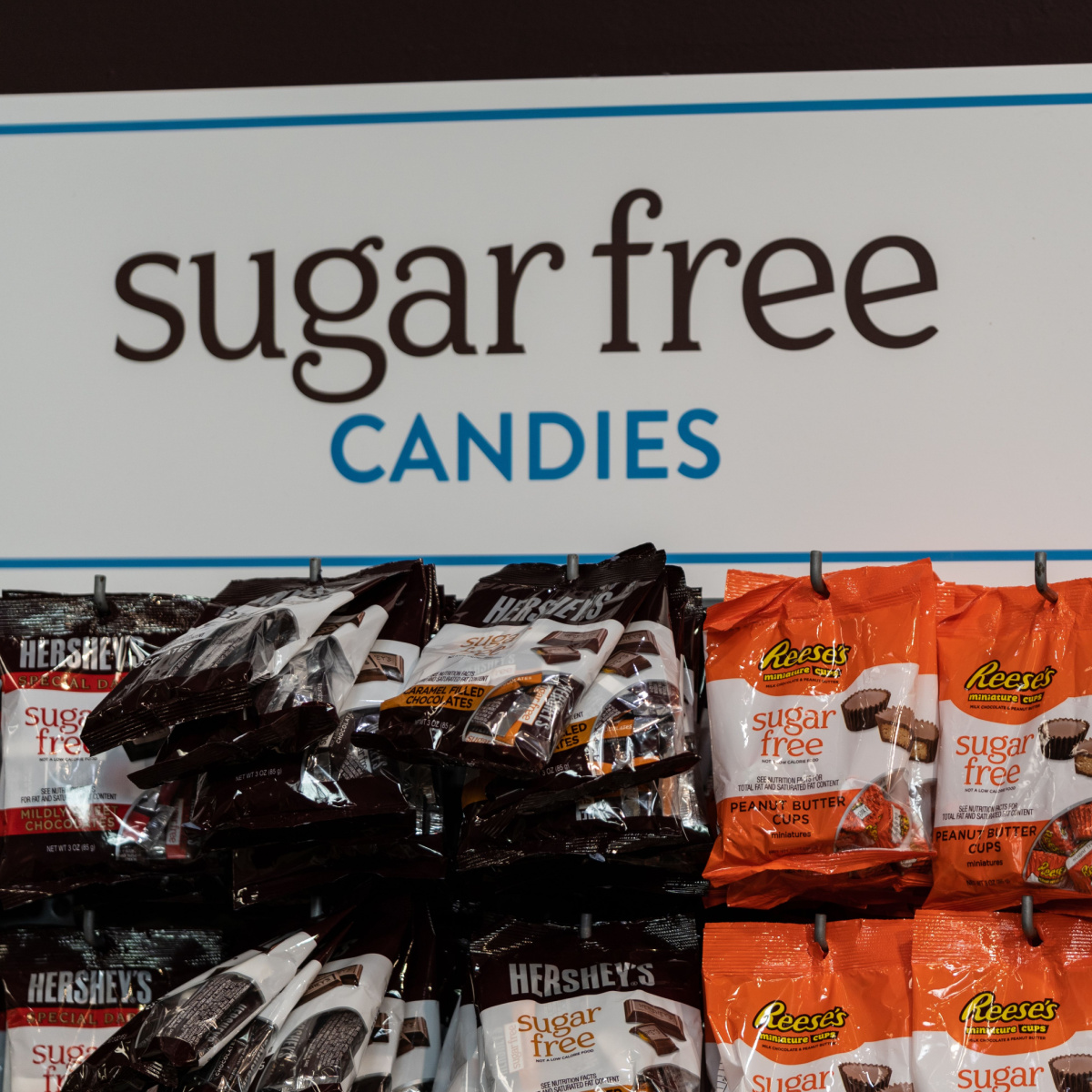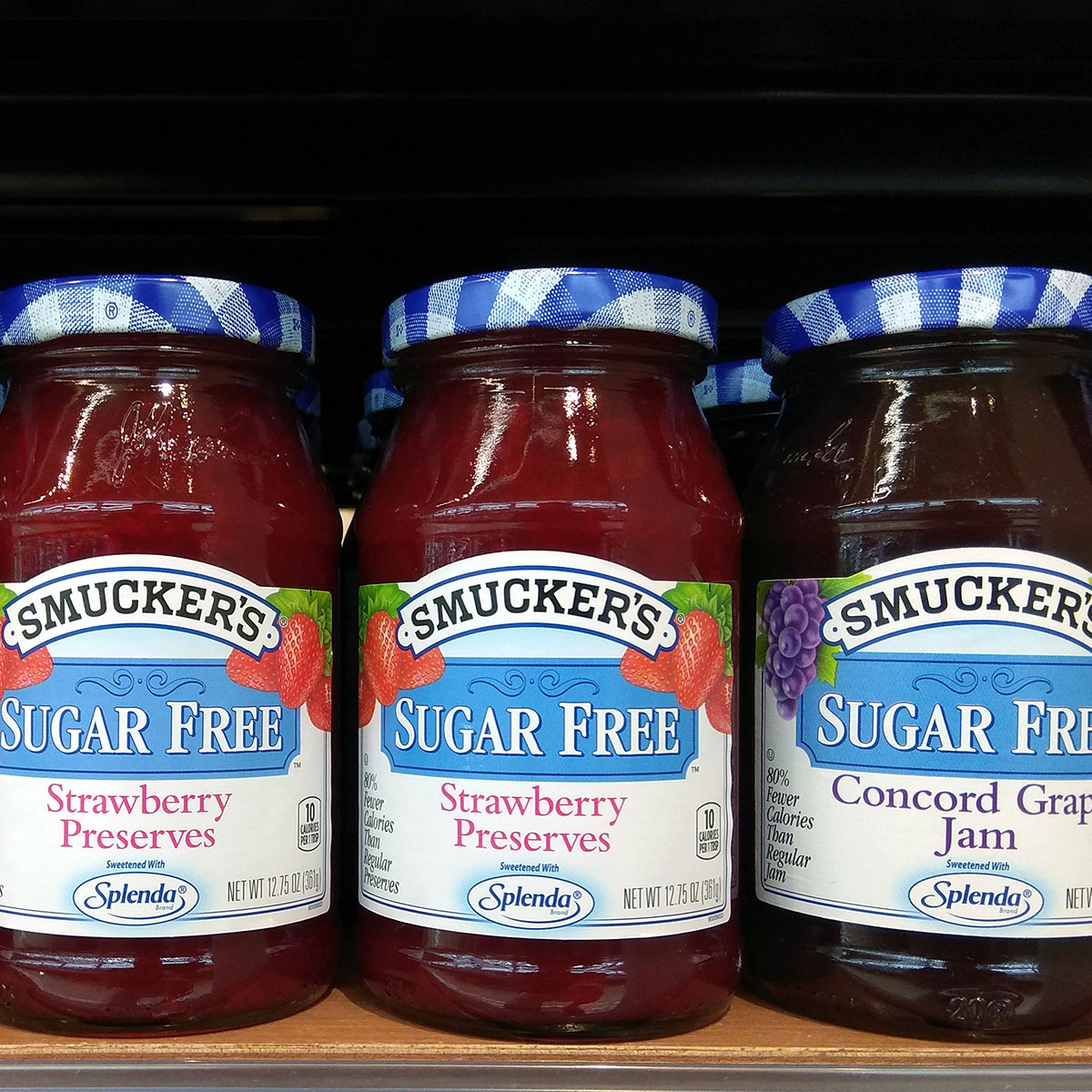In recent years, sugar-free foods have gained immense popularity, promising a healthier alternative to traditional sugary indulgences. With a growing focus on weight management and overall health, individuals seeking to shed excess pounds often turn to these products as a potential solution. But the question remains: are sugar-free foods truly effective in aiding weight loss, or do they hide potential pitfalls behind their seemingly virtuous labels?
It’s important to understand whether these sugar substitutes genuinely contribute to a healthier lifestyle or if they pose unforeseen health risks, so we reached out to Mary Sabat, MS, RDN, LD, to find out the truth. Sabat says that the answer is both yes and no since it really depends on what else is in the food because, as always, balance is the key when it comes to diet. Read on to find out more.


Are Sugar-Free Foods Beneficial For Weight Loss?
Sabat starts off by saying, "Sugar-free foods are designed to contain little to no added sugars, which can be beneficial for those trying to lose weight. It can help with controlling calorie consumption and prevent blood sugar spikes, which aid in weight management. While sugar-free foods may contain fewer sugars, they can still be high in other unhealthy ingredients like refined carbohydrates, unhealthy fats, and artificial sweeteners, which can hinder weight loss efforts."
It's important to remember that sugar-free does not imply carbohydrate-free, and carbohydrates can convert to sugar in the body, affecting blood sugar levels and potentially leading to fat storage. Despite the absence of traditional sugar, the consumption of carbohydrates still warrants consideration as they can influence your body's response to blood glucose levels, potentially impacting weight management and fat storage.
Sabat breaks down in three ways how sugar-free foods usually help with weight loss and why people see some results. It involves a lower calorie intake, blood sugar control, and a reduced risk of certain health issues. "Since sugar adds extra calories to foods and beverages, consuming sugar-free alternatives can help reduce overall calorie intake, which is essential for weight loss. High-sugar foods can lead to rapid spikes and crashes in blood sugar levels, increasing hunger and cravings. Sugar-free options can help stabilize blood sugar, reducing the likelihood of overeating. High sugar intake is associated with obesity, type 2 diabetes, and other health problems," Sabat states. Noted!

Ways You Can Balance A Sugar-Free Diet
If you've found success in your weight loss journey through a sugar-free diet, taking it a step further and optimizing your results is possible by integrating these valuable tips listed by Sabat. These insightful recommendations will help you strike a balance and enhance the effectiveness of your sugar-free approach to achieve your desired goals. "Whether you're considering sugar-free foods or any other dietary approach, balance and moderation are key. A diet that is well-rounded and includes a variety of nutrient-dense foods is more likely to support sustainable weight loss and overall health. Pay attention to the overall quality of the ingredients in sugar-free foods. Some sugar-free products may contain artificial sweeteners or other additives that are not beneficial. While diet plays a crucial role in weight loss, incorporating regular physical activity is also essential for overall health and achieving weight loss goals."
Overall, sugar-free foods can indeed aid in weight loss when selected wisely and integrated into a well-balanced diet. However, it's crucial to recognize that they are not a complete solution, and achieving successful and lasting weight management depends on a comprehensive approach that encompasses overall dietary choices and lifestyle factors. By considering the bigger picture, you can maximize the benefits of sugar-free options while laying the foundation for sustainable weight loss.


























